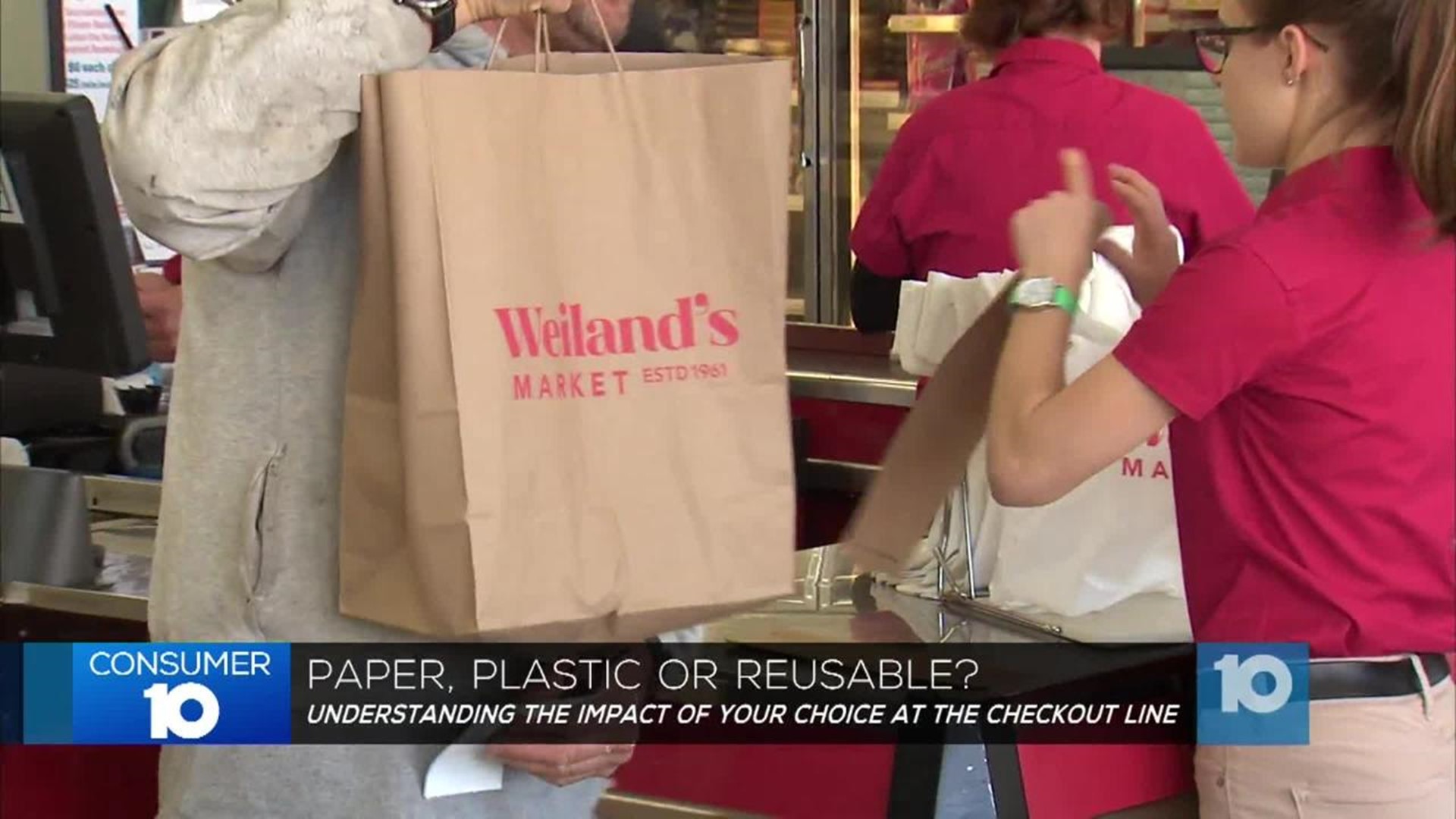COLUMBUS, Ohio — Plastic bags are the enemy, right?
That is often the message from "go green" campaigns. But that message may not be so clear-cut.
Cities across the country, including Bexley, are banning single-use plastic bags. They can certainly be damaging to the environment, but they are not the only bags that make an impact.
"It’s definitely an issue where there’s more than meets the eye," said David Celebrezze, GreenSpot coordinator for the City of Columbus.
There are a lot of issues at play when it comes to choosing between paper, plastic and reusable bags.
"You do have to look at transportation costs and emissions associated with that, you have to look at the emissions that go into creating the bags, and what happens when you’re done with those bags," Celebrezze said.
When it comes to plastic, one of the biggest problems can be where the bags end up after they are used.
"The plastic bags — first of all, they’re made from petroleum-based products, which is a non-renewable resource," said Jon Hsu, of Hilliard's Environmental Sustainability Commission.
Hsu also pointed out that plastic bags can make their way into the household recycling stream and end up clogging up the machines at the facility.
On the flip side, plastic bags are cheaper to make and use fewer resources.
That is much of the reason why stores started replacing paper with plastic years ago.
But some environmental experts point out that paper is not necessarily the solution either.
"Paper bags — again, they’re recyclable, but one thing to keep in mind with those is that it actually takes more energy and more water to recycle a paper bag than it does a plastic bag," Hsu said.
In fact, one British study suggested a paper bag requires three times as much energy to make than a plastic bag.
So, that is why most experts agree that reusable is best. But even that option can have its drawbacks.
That same British study suggested that a shopper would have to reuse a heavy-duty plastic reusable bag at least four times to offset its environmental impact. But a cotton bag would have to be used at least 131 times.
"If you’re using that reusable bag once, and then you throw it away, that has a bigger environmental impact than if you just got that single-use plastic bag," Celebrezze said.
Of course, what happens after any type of bag is used also is important.
Plastic bags are cheaper to recycle, but that doesn't much matter if they never make it to the proper recycling bin.
Most grocery stores do have specific containers to collect plastic bags and get them to the proper place.
GreenSpot offers users a way to track their own reusable bag usage. And Celebrezze says the site will soon have a dashboard to show users their own environmental impact.
The city of Bexley recently passed an ordinance banning single-use plastic bags, which goes into effect next year.

